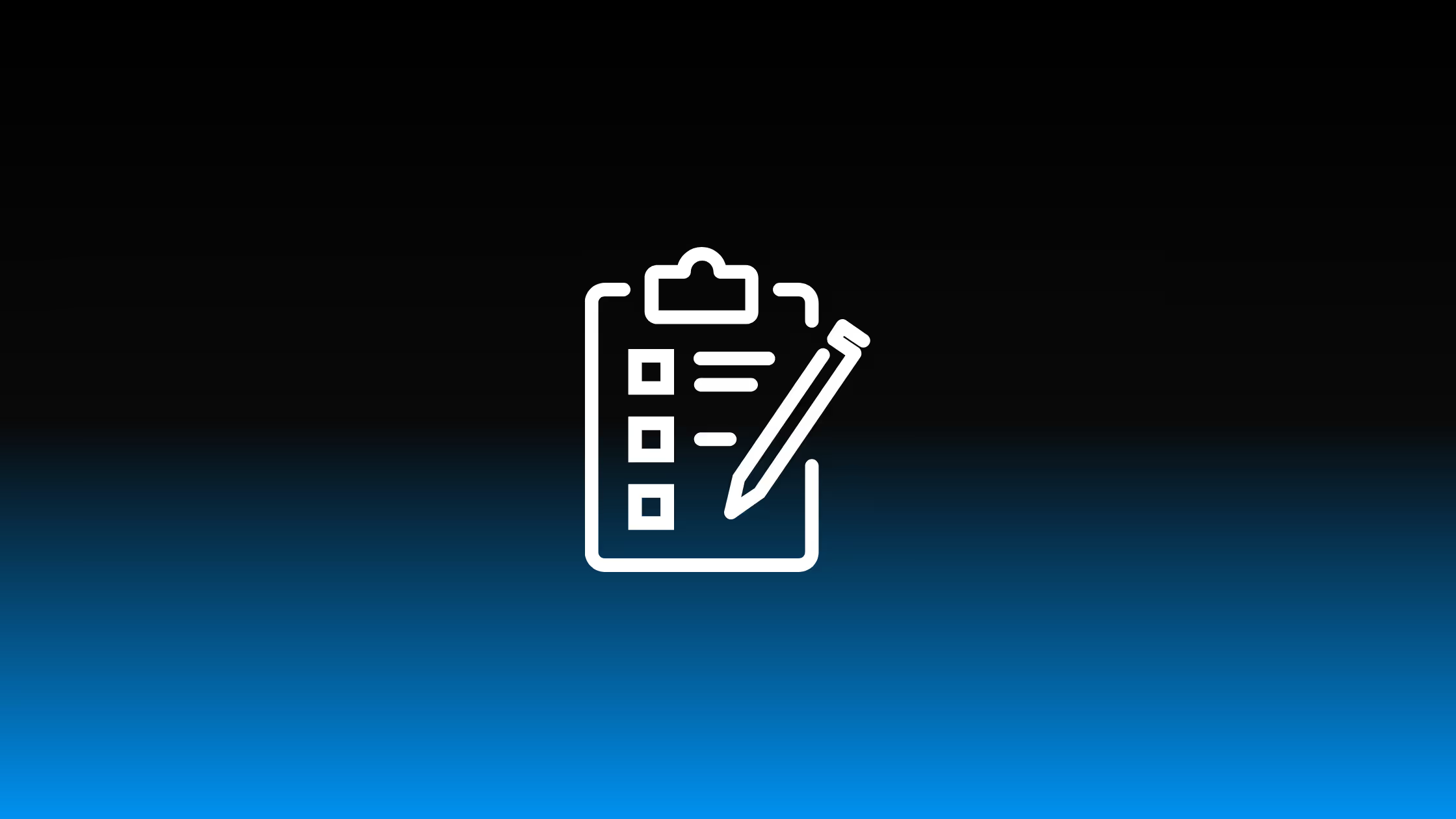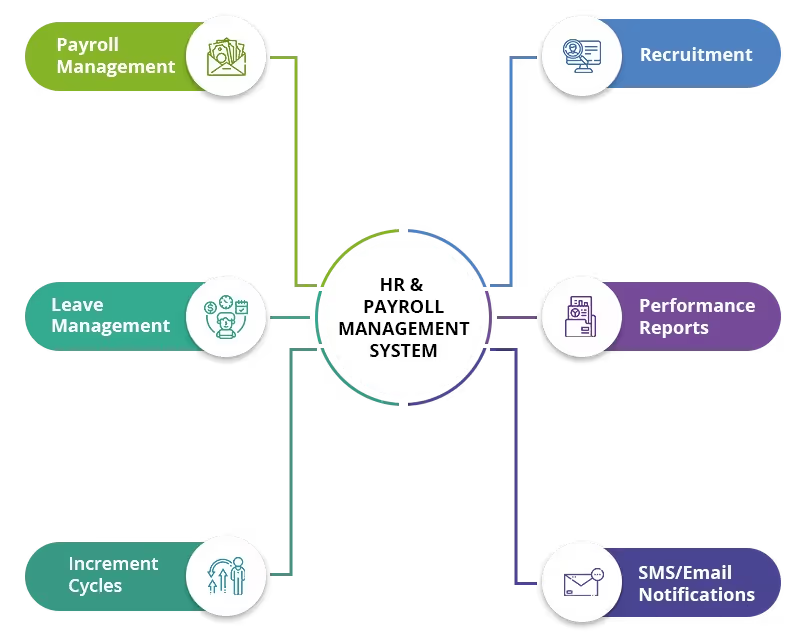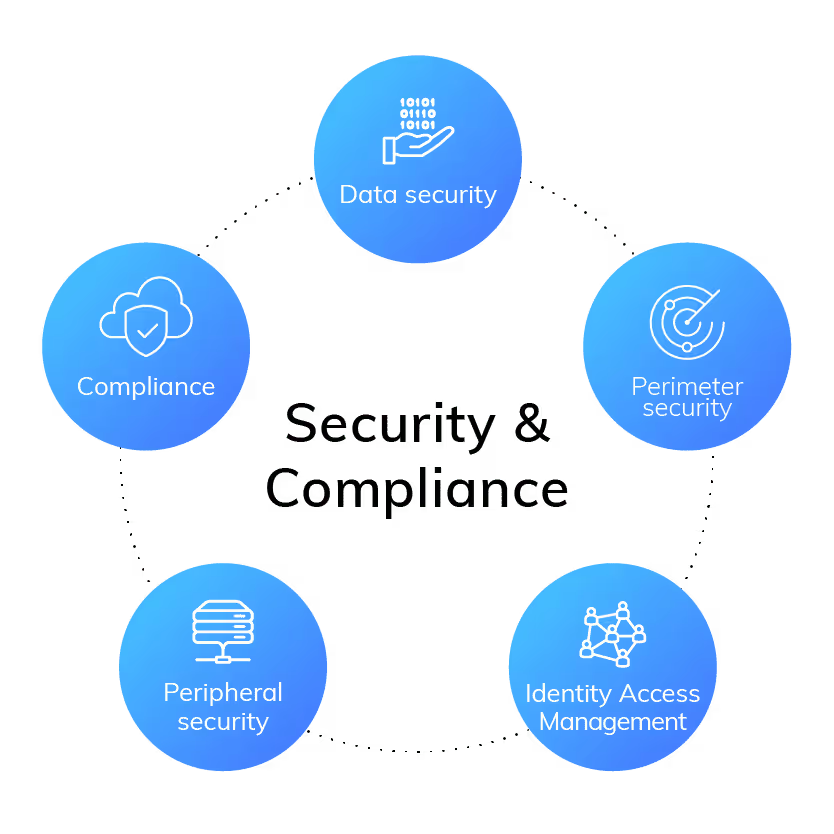Things to Consider When Buying Compensation Management Software

In today's competitive business environment, organizations must ensure that their employees are appropriately compensated and rewarded for their hard work. Compensation management software can help streamline this process by automating the administration of salaries, bonuses, and other incentives.
When looking to invest in compensation management software, it's essential to consider several factors to ensure the best fit for your organization. This quick introduction will highlight some key aspects to consider when purchasing compensation management software.
- Integration with existing systems
- Customization and scalability
- Reporting and analytics capabilities
- Compliance and security features
- User-friendliness and support
- Vendor reputation and experience
- Pricing and return on investment
By taking these factors into account, businesses can make an informed decision and select the right compensation management software for their needs. This will help to create a more efficient and effective compensation process, ultimately leading to increased employee satisfaction and retention.
Unlocking Success: Selecting the Ideal Compensation Management Software for Your Thriving Business

Compensation management software is a digital solution designed to automate, streamline, and optimize an organization's compensation planning and administration processes. It helps businesses manage employee salaries, bonuses, commissions, and other financial incentives to ensure fair and accurate distribution of rewards based on performance, skills, and market benchmarks. Choosing the right compensation management software for your business is crucial for several reasons:
- Enhance Efficiency: The right software can save time and reduce human errors by automating complex calculations and processes related to compensation management. This allows HR professionals to focus on more strategic tasks and make informed decisions about employee compensation.
- Employee Retention and Motivation: A well-designed compensation management system helps create transparent, fair, and competitive pay structures. This can lead to increased employee satisfaction, motivation, and retention, as employees feel that their efforts are appropriately rewarded.
- Compliance and Risk Management: The right software ensures compliance with regulatory requirements and labour laws related to employee compensation. It can also help mitigate risks associated with manual errors, bias, or inconsistencies in the compensation process.
- Informed Decision-Making: Robust reporting and analytics capabilities enable organizations to make data-driven decisions about compensation strategy and planning. This can help businesses stay competitive in the market and attract and retain top talent.
- Scalability and Adaptability: Choosing a flexible and customizable compensation management software allows businesses to adapt and grow with changing organizational needs, market conditions, and industry trends. This ensures that the software remains relevant and useful over time.
- Cost Savings: By automating and streamlining the compensation process, the right software can help businesses reduce administrative costs, improve resource allocation, and achieve a better return on investment.
Selecting the right compensation management software for your business is essential to improving efficiency, ensuring compliance, and fostering a motivated workforce. By considering the factors outlined in the previous response, you can make an informed decision that will benefit your organization in the long run.
Key Features to Look for in Compensation Management Software
When evaluating compensation management software, it's essential to identify key features that will best serve your organization's needs. Here are some critical features to look for:

- Integration and Compatibility: The software should seamlessly integrate with your existing performance management systems, ensuring smooth data transfer and minimizing the need for manual data entry.
- Customization and Flexibility: The ability to tailor the software to your organization's unique compensation strategy and policies is essential. Look for solutions that offer customizable templates, workflows, and rules to meet your specific needs.
- Reporting and Analytics: Comprehensive reporting and analytics capabilities can help you gain insights into your compensation practices, identify trends, and make data-driven decisions. Look for software that offers customizable dashboards, reports, and analytics tools.
- Compliance and Risk Management: The software should assist in ensuring compliance with local and international labor laws and regulations related to employee compensation. It should also offer audit trails and security features to minimize risks associated with manual errors and data breaches.
- Market Data and Benchmarking: Access to real-time market data and industry benchmarks can help you create competitive compensation packages that attract and retain top talent. Choose software that offers easy access to this information and allows for easy comparison with your organization's practices.
- Salary and Bonus Planning: The software should enable you to create, manage, and automate salary and bonus plans based on employee performance, skills, experience, and market benchmarks.
- Performance-Based Compensation: Integration with performance management systems will allow you to link compensation to employee performance, ensuring that rewards are aligned with individual and organizational goals.
- User-Friendly Interface: The software should be easy to use and navigate for all users, from HR professionals to managers and employees. A user-friendly interface and clear instructions can minimize the learning curve and improve user adoption.
- Cloud-Based and Mobile Accessibility: Cloud-based solutions offer flexibility, scalability, and real-time access to data. Additionally, mobile accessibility ensures that managers and employees can access the system anytime, anywhere.
- Support and Training: Choose a vendor that offers comprehensive support and training resources to help your organization maximize the software's potential. This may include live support, online help centres, webinars, and user communities.
By considering these key features when evaluating compensation management software, you can make a well-informed decision that best suits your organization's needs and contributes to an effective and efficient compensation process.
Integration With Other Systems
Tailoring Key Features to Business Needs: Identifying Essential Elements for Diverse Industries
Different businesses have varying needs when it comes to compensation management software. Here are some features that might be more important for specific types of businesses:
Small and Growing Businesses:
- Affordability: Cost-effective solutions that provide the essential features without breaking the budget.
- Ease of Use: User-friendly interfaces that can be easily navigated by HR staff and employees with minimal training.
- Basic Reporting: Fundamental reporting and analytics capabilities to gain insights into compensation practices.
- Scalability: Software that can adapt and grow with the business as it expands and hires more employees.
- Customization and Flexibility: The ability to modify compensation plans, templates, and workflows to align with evolving business needs
- Market Data and Benchmarking: Access to real-time market data and industry benchmarks to create competitive compensation packages and attract top talent.
Large and Global Enterprises:
- Advanced Analytics: Robust reporting and analytics tools to provide in-depth insights, identify trends, and support data-driven decision-making.
- Performance-Based Compensation: Integration with performance management systems to link compensation to employee performance and align rewards with organizational goals.
- Compliance and Risk Management: Comprehensive features to ensure adherence to local and international labor laws and regulations, as well as robust security measures to protect sensitive data.
- Multi-Currency and Multi-Language Support: The ability to manage compensation across different countries, languages, and currencies.
- Global Compliance: Features to help ensure compliance with labor laws and regulations across multiple jurisdictions
- Centralized Management: A centralized system that allows HR teams to manage and coordinate compensation policies and practices across various locations.
Sales-focused Organizations:
- Commission Management: Tools to create, manage, and track sales commission plans based on individual and team performance.
- Incentive Management: Features to design and administer various incentive programs, such as bonuses, profit-sharing, and equity-based compensation.
- Real-time Reporting: Access to real-time sales performance data to enable timely adjustments to compensation plans and incentives.
Ultimately, the importance of specific features will depend on the nature of the business, its size, its industry, and unique compensation requirements. It's crucial to carefully assess your organization's needs and prioritize features accordingly when selecting compensation management software.
Unlocking Synergy: Compensation Management Software and Its Integration with HRIS, Payroll, and Performance Systems
Compensation management software is important to consider because it streamlines and automates the process of planning, administering, and managing employee compensation. This results in a more efficient, accurate, and transparent system, which ultimately helps organizations attract, retain, and motivate top talent. There are several reasons why integrating compensation management software with other systems, such as HRIS, payroll, and performance management systems, is beneficial:

- Data Accuracy and Consistency: Integrating compensation management software with other systems ensures that employee data is consistent and up-to-date across all platforms. It minimizes manual data entry, reducing the risk of human errors and discrepancies in employee records.
- Time and Resource Savings: Integration enables the automatic transfer of relevant data between systems, eliminating the need for duplicate data entry and saving time and resources. This allows HR professionals to focus on more strategic tasks and adds value to the organization.
- Holistic View of Employee Performance: When compensation management software is integrated with performance management systems, it enables organizations to link compensation directly to employee performance. This helps create a merit-based system that fairly rewards employees based on their performance, skills, and experience.
- Streamlined Payroll Processing: Integration with payroll systems ensures that compensation adjustments, such as salary increases, bonuses, and commissions, are accurately and efficiently reflected in payroll processing. This reduces the risk of payroll errors and ensures timely and accurate payments to employees.
- Improved Compliance: Integrating compensation management software with HRIS and payroll systems can help organizations better comply with labor laws and regulations related to employee compensation. It helps track and maintain necessary documentation and records, making it easier to demonstrate compliance during audits or inspections.
- Enhanced Decision-Making: Integration with other systems provides a comprehensive view of employee data, including performance, compensation, and personal information. This enables HR professionals and managers to make more informed decisions related to employee compensation, career development, and workforce planning.
Compensation management software is essential for organizations to effectively manage employee compensation and rewards. Integrating this software with other systems such as HRIS, payroll, and performance management systems enhances efficiency, accuracy, and compliance, ultimately contributing to a more effective and strategic approach to compensation management.
Customization Options
Tailored Solutions: The Importance of Customizable Compensation Management Software for Your Business
Choosing a compensation management software that can be customized to meet your specific needs is important for several reasons:
- Unique Compensation Strategies: Every organization has its unique compensation strategy, policies, and practices. Customizable software allows you to tailor the system to align with your specific approach, ensuring that your compensation plans effectively incentivize and reward your employees.
- Adaptability: Organizations evolve over time, and their compensation needs may change due to factors such as business growth, mergers, acquisitions, or changes in the industry landscape. Customizable software can be easily modified to adapt to these changes, ensuring that it remains relevant and effective for your organization.
- Competitive Advantage: Customizable compensation management software enables you to design compensation packages that set you apart from competitors, helping you attract and retain top talent. It allows you to adjust your compensation strategy to remain competitive in your industry and maintain employee satisfaction.
- Regulatory Compliance: Different industries and regions have varying regulations and labor laws related to employee compensation. Customizable software allows you to configure the system to adhere to these regulations, ensuring compliance and reducing the risk of penalties or fines.
- Streamlined Workflows: Customizable software can be tailored to match your organization's existing workflows and processes, minimizing disruptions and ensuring a smooth implementation. This can lead to greater efficiency and productivity within the compensation management process.
- Employee Engagement: When compensation management software is customized to meet your organization's unique needs, it can better align rewards with employee performance, goals, and expectations. This fosters a sense of fairness and transparency, ultimately improving employee engagement and satisfaction.
Overall, choosing a customizable compensation management software is crucial to ensuring that your organization's specific compensation needs are met. It allows for greater adaptability, competitiveness, compliance, and efficiency, all of which contribute to a more effective compensation management process and higher employee satisfaction.
Role-Based Perspectives: Navigating Diverse Data Access and Views in Your Organization
In an organization, various roles have different responsibilities and require access to specific data to perform their tasks effectively. Granting appropriate access levels based on an individual's role can help maintain data security, protect sensitive information, and ensure that employees can access the information they need to make informed decisions. Here are some examples of different roles and their data access requirements:
- HR Professionals: HR staff are responsible for managing employee compensation, benefits, and performance data. They may need access to detailed information about salaries, bonuses, commissions, and other incentives, as well as the ability to create, modify, and approve compensation plans.
- Managers and Team Leads: Managers and team leads need access to their team members' performance data, such as goals, achievements, and evaluations, to make informed decisions about compensation adjustments, promotions, or other recognition. They may also require the ability to recommend or approve salary increases, bonuses, or other incentives based on their team's performance.
- Executives: C-level executives and upper management may require a high-level view of the organization's compensation strategy and budget, as well as access to aggregate data on employee performance and compensation trends. This helps them make strategic decisions about the organization's overall compensation structure, budget allocations, and competitive positioning in the market.
- Finance Professionals: Finance staff may need access to compensation data to ensure accurate budgeting, forecasting, and financial reporting. They may also need to monitor compliance with compensation-related regulations and oversee the financial aspects of the organization's compensation strategy.
- Employees: Employees typically have limited access to their personal compensation and performance data, such as salary, bonuses, performance evaluations, and goals. This allows them to track their progress, understand how their compensation is determined, and engage in self-improvement or professional development initiatives.
By providing different views and access levels to different roles within the organization, you can maintain data security, protect sensitive information, and ensure that each individual has the necessary information to make informed decisions and contribute to the organization's success. A robust compensation management software should provide the ability to configure user access and permissions based on the roles and responsibilities within your organization.
User Interface and Ease of Use
Seamless User Experience: The Significance of Intuitive Compensation Management Software Interfaces
Choosing compensation management software with a user-friendly interface and intuitive navigation is crucial for several reasons:
- Faster Adoption: When software is easy to use and navigate, employees can quickly learn how to utilize its features, leading to faster adoption across the organization. This ensures that the software's benefits are realized sooner and minimizes disruptions to existing workflows.
- Increased Efficiency: A user-friendly interface allows HR professionals, managers, and employees to access and manage compensation data more efficiently. Intuitive navigation minimizes the time spent searching for information or figuring out how to perform tasks, freeing up time for more strategic activities.
- Reduced Training Costs: When the software is easy to understand and use, the need for extensive training is diminished. This can result in reduced training costs and a faster return on investment for the organization.
- Improved User Satisfaction: A user-friendly interface can lead to higher user satisfaction, as employees are less likely to experience frustration or confusion while using the software. This can positively impact their overall perception of the compensation management process and their engagement with the system.
- Enhanced Decision-Making: Intuitive navigation and a user-friendly interface make it easier for users to access and analyze relevant data, which can improve decision-making related to compensation, performance management, and workforce planning.
- Lower Risk of Errors: A clear and easy-to-use interface reduces the likelihood of user errors, such as entering incorrect data or making unintended changes to compensation plans. This can help maintain data accuracy and minimize the risk of costly mistakes.
Security and Compliance

Safeguarding Data: Selecting Compensation Management Software for Security and Regulatory Compliance
Choosing a compensation management software that meets security and compliance standards, such as the General Data Protection Regulation (GDPR) and the California Consumer Privacy Act (CCPA), is crucial for several reasons:
- Data Protection: Compensation management software handles sensitive employee data, such as personal information, salary details, and performance records.
- Regulatory Compliance: Organizations are required to comply with relevant data protection and privacy regulations, such as GDPR and CCPA. Choosing software that meets these standards ensures that your organization remains compliant and avoids potential penalties, fines, or legal issues.
- Reputation and Trust: Demonstrating a commitment to data security and compliance can enhance your organization's reputation and foster trust among employees, customers, and partners. This can lead to better employee retention and customer satisfaction, as well as a competitive advantage in the market.
- Risk Mitigation: Adhering to security and compliance standards reduces the risk of data breaches, leaks, or other security incidents that could result in financial losses, legal liabilities, and reputational damage.
- Global Operations: If your organization operates internationally or has employees in different countries, complying with data protection and privacy regulations is essential.
- Audits and Reporting: Compliance with data protection regulations often requires organizations to maintain accurate records and documentation.
In conclusion, choosing compensation management software that meets security and compliance standards such as GDPR and CCPA is vital to protect sensitive employee data, maintaining regulatory compliance, enhance your organization's reputation, mitigate risks, supporting global operations, and streamline audits and reporting. Ultimately, this helps create a more secure and compliant environment for managing employee compensation and fostering trust among stakeholders.
Ensuring Compliance: The Key to Safeguarding Employee Data and Privacy
Compliance with data protection regulations is critical for protecting employee data for the following reasons:
- Privacy and Security: Compliance with data protection regulations ensures that employee data is handled securely and confidentially. This minimizes the risk of unauthorized access, data breaches, or misuse, ultimately safeguarding employees' privacy and personal information.
- Trust and Confidence: Adhering to data protection regulations fosters trust and confidence among employees.
- Legal Obligations: Organizations are legally obligated to comply with applicable data protection regulations, such as GDPR and CCPA.
- Reputation and Brand Image: Demonstrating a commitment to data protection and compliance can enhance an organization's reputation and brand image.
- Risk Mitigation: Compliance with data protection regulations helps organizations identify and address potential security risks, minimizing the likelihood of data breaches, leaks, or other security incidents. This reduces the risk of financial losses, legal liabilities, and reputational damage.
- Ethical Responsibility: Organizations have an ethical responsibility to protect employee data and ensure the privacy and security of personal information.
Compliance with data protection regulations is critical for protecting employee data, as it ensures privacy and security, fosters trust and confidence fulfils legal obligations, enhances reputation and brand image, mitigates risks, and demonstrates ethical responsibility. Ensuring that your compensation management software adheres to these regulations is essential in creating a secure and compliant environment for managing employee compensation and data.
Customer Support and Training
Unlock Success: Picking Compensation Software with Stellar Support and Training
It is important to choose compensation management software with reliable customer support and training options for several reasons:
- Smooth Implementation: Reliable customer support and training can help ensure a smooth implementation process for the software.
- Faster Adoption: Comprehensive training options help your employees learn how to use the software more quickly and effectively.
- Minimized Downtime: Reliable customer support can quickly address any technical issues or questions that arise while using the software, reducing downtime and ensuring that your compensation management processes continue running smoothly.
- Continuous Improvement: Ongoing training and support can help your team stay up-to-date with new features, best practices, and software updates. This enables your organization to continuously improve its compensation management processes and get the most out of the software.
- Increased ROI: When your employees are well-trained and have access to responsive customer support, they can utilize the software more efficiently and effectively.
- Employee Satisfaction: Employees are more likely to be satisfied with the software if they understand how to use it and can rely on customer support for assistance when needed.
Choosing compensation management software with reliable customer support and training options is crucial to ensure smooth implementation, faster adoption, minimized downtime, continuous improvement, increased ROI, and enhanced employee satisfaction. These factors contribute to a more effective and efficient compensation management process, benefiting both the organization and its employees.
Conclusion
When choosing compensation management software, consider customization, integration with existing systems, user-friendliness, security and compliance, and reliable customer support and training. Evaluate features that meet your organization's unique needs and prioritize seamless integration with HRIS, payroll, and performance management systems. Ensure the software is user-friendly, adheres to security and compliance standards, and offers robust customer support and training options. Carefully evaluate your options to select a solution that effectively streamlines compensation management, improves decision-making, and enhances employee satisfaction, ultimately benefiting your organization as a whole.
Find out how Compport can help you manage all your Compensation Management process, book a demo today!
%2520(6)%2520(2).avif)
Frequently Asked Questions
Q1: How can data inform the selection of a compensation tool for my business?
A: Data can play a crucial role in selecting the right compensation tool. Understanding your business's specific data needs, such as the complexity of your compensation structure, the size of your workforce, and the diversity of employee roles, can guide your choice. You might also analyze the outcomes of peer companies that have used specific tools to gain insights into potential effectiveness.
Q2: What data capabilities should I consider when selecting a compensation tool?
A: When selecting a compensation tool, consider whether it can handle the type and volume of data your business deals with. It should be able to integrate data from various sources, like HRIS or payroll systems. The tool should also provide analytics capabilities to support compensation decision-making, such as benchmarking data, pay equity analysis, and performance metrics.
Q3: How can data help assess the ROI of a compensation tool?
A: Tracking key metrics before and after implementing a compensation tool can help assess its ROI. These metrics could include time spent on compensation management tasks, error rates in compensation calculations, employee satisfaction with compensation, and retention rates. If the tool leads to improvements in these areas, it may be providing a good return on investment.
Q4: How can data from trial periods or pilot projects help in selecting a compensation tool?
A: Running a trial period or pilot project with a potential compensation tool can provide valuable data. You can assess whether the tool meets your business's needs, how well it integrates with your existing systems, and how users respond to it. This data can inform your decision and help you choose a tool that will be effective in your specific business context.
Q5: How can I use data to ensure the compensation tool stays relevant as my business evolves?
A: Regularly reviewing data on your business's compensation needs and how well the tool is meeting them can help ensure it remains relevant. For example, as your business grows, you may need a tool that can handle larger volumes of data or more complex compensation structures. Monitoring user feedback and changes in business needs can help you anticipate when it might be time to upgrade or switch tools.


%20(49).png)
%20(48).png)
%20(47).avif)
